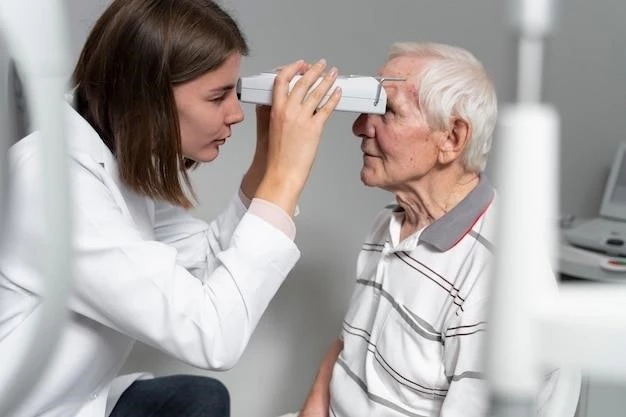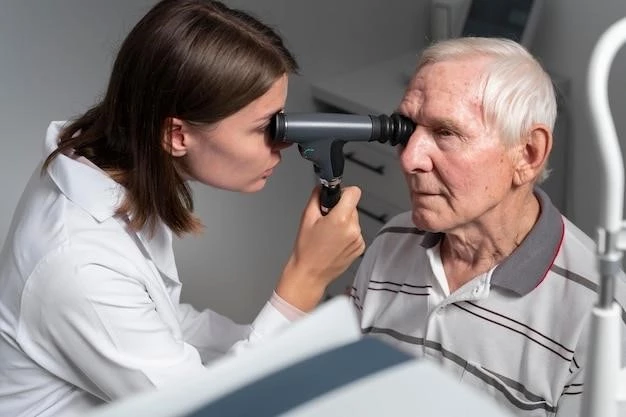Understanding Cataracts
Causes of Cataracts
Exposure to UV light, aging, diabetes, and smoking can lead to cataract development.
Symptoms of Cataracts
Blurry vision, sensitivity to light, poor night vision, and seeing halos are common signs.
Causes of Cataracts
Cataracts typically form as a result of aging, where proteins in the eye lens break down and clump together. Other causes include⁚
- Excessive UV light exposure
- Genetic factors
- Eye injuries or surgeries
- Medical conditions like diabetes
- Long-term use of corticosteroids
- Smoking and alcohol consumption
These factors can contribute to the development of cataracts by affecting the normal functioning of the eye lens and leading to clouding and opacity.
Symptoms of Cataracts
The symptoms of cataracts gradually worsen over time and may include⁚
- Blurred, cloudy, or dim vision
- Sensitivity to light and glare
- Poor night vision
- Seeing halos around lights
- Fading or yellowing of colors
- Double vision in a single eye
If you experience these symptoms, it’s essential to consult an eye care professional for a proper diagnosis and treatment plan. Early detection and management of cataracts can help preserve your vision and quality of life.

Treating Cataracts
Treatment Options for Cataracts
Surgical removal of the cloudy lens and replacing it with an artificial one is the most common treatment.
Treatment Options for Cataracts
Cataracts can significantly impact vision and quality of life, but various treatment options are available⁚
- Phacoemulsification⁚ A common cataract surgery where the cloudy lens is broken up and removed.
- Intraocular Lens Implant⁚ The natural lens is replaced with an artificial one to restore vision.
- Laser Surgery⁚ Use of laser technology in certain cases for precise removal of cataracts.
- Monovision Correction⁚ An option for reducing the need for glasses after surgery.
Choosing the appropriate treatment depends on the patient’s overall health, lifestyle, and the progression of the cataracts, so it’s crucial to consult with an ophthalmologist to discuss the best approach.
Prevention of Cataracts
While cataracts are often age-related, there are ways to potentially reduce your risk of developing them⁚
- Protect Your Eyes⁚ Wear sunglasses with UV protection and hats outdoors.
- Quit Smoking⁚ Smoking has been linked to an increased risk of cataracts.
- Healthy Diet⁚ Eating foods rich in antioxidants like fruits and vegetables can support eye health.
- Regular Eye Exams⁚ Routine eye check-ups can help detect cataracts early.
- Maintain Overall Health⁚ Manage conditions like diabetes and hypertension that can contribute to cataract formation.
By incorporating these habits into your lifestyle, you can take proactive steps towards preventing or delaying the onset of cataracts.
Managing Cataracts
Cataract Surgery Process
Learn about the steps involved in cataract surgery and how it can improve your vision effectively.
Cataract Surgery Process
The cataract surgery process typically involves the following steps⁚
- Preoperative Evaluation⁚ Assessing your eye health and discussing the procedure with the surgeon.
- Anesthesia⁚ Numbing the eye to ensure comfort during the surgery.
- Lens Removal⁚ Breaking up and removing the cloudy lens using phacoemulsification or laser.
- Lens Implantation⁚ Placing an artificial intraocular lens (IOL) to restore clear vision.
- Postoperative Care⁚ Following the surgeon’s instructions for recovery and attending follow-up appointments.
Understanding each phase of cataract surgery can help alleviate anxiety and prepare you for a successful outcome with improved vision.
Lifestyle Changes for Cataract Prevention
Implementing healthy lifestyle habits can help reduce the risk of cataracts. Consider the following changes⁚
- Healthy Diet⁚ Include antioxidant-rich foods like berries, leafy greens, and nuts.
- Sun Protection⁚ Wear UV-blocking sunglasses and hats when outdoors.
- Quit Smoking⁚ Smoking is a risk factor for cataracts; seek support to quit.
- Manage Health Conditions⁚ Control diabetes, hypertension, and obesity.
- Regular Exercise⁚ Stay active to support overall health and eye function.
Healthy choices and habits can contribute to maintaining clear vision and reducing the likelihood of cataract formation as you age.
Risks and Advancements
Complications of Untreated Cataracts
Discover the potential risks associated with untreated cataracts and why timely treatment is crucial.
Complications of Untreated Cataracts
Delaying cataract treatment can lead to various complications impacting your vision and daily life⁚
- Progressive Vision Loss⁚ Cataracts worsen over time, leading to blurred or cloudy vision.
- Risk of Falls⁚ Poor vision increases the chances of accidents and falls.
- Visual Impairment⁚ Difficulty driving, reading, and performing daily activities.
- Decreased Quality of Life⁚ Strain on relationships and independence due to vision impairment.
- Secondary Issues⁚ Increased risk of eye infections or glaucoma if left untreated.
Recognizing these potential complications emphasizes the importance of timely cataract treatment to maintain optimal eye health and overall well-being.
Innovations in Cataract Treatment
Advancements in cataract treatment have enhanced surgical techniques and lens options, improving outcomes for patients⁚
- Laser Cataract Surgery⁚ Precise laser technology for more accurate cataract removal.
- Premium Lens Implants⁚ Options like multifocal or toric lenses can correct vision at various distances.
- Micro-Incision Surgery⁚ Smaller incisions for faster healing and reduced astigmatism.
- Femtosecond Laser⁚ Creates precise incisions and assists in lens fragmentation during surgery.
- Intraoperative Aberrometry⁚ Real-time measurements to optimize lens selection and placement.
Embracing these innovations can lead to better visual outcomes and increased patient satisfaction post-cataract surgery, enhancing quality of life for those affected by cataracts.
